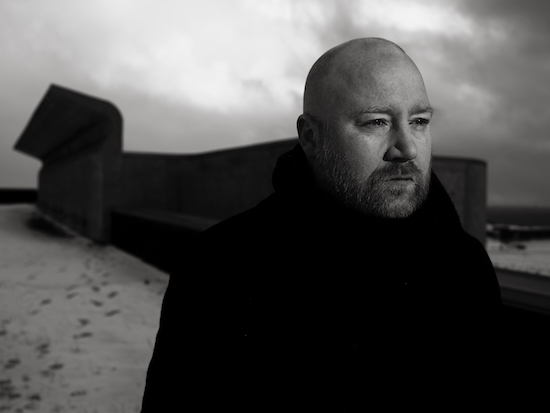“I could have made it even more confusing if you wanted.”
An anti-list like this seems, on the face of it, less personally telling than a list earnestly plumbed from the depths of the musical soul: a kind of stubborn but understandable refusal to be pinned down by an exact time and place or by a single genre. But, in deliberately setting against that kind of list – picking thirteen records onto which you couldn’t drop a Google Maps pin either sonically or geographically – it alludes to something else. And with Jóhann Jóhannsson that’s a love of simplicity – of “very simple but just very well chosen sounds” – that in their relative minimalisms guide the listener, willingly or otherwise, to a certain place or state of mind rather than providing explicit directions.
It’s an interesting line from someone who recently used an orchestra with “eight double basses” and “endless layers of percussion” in composing music for Denis Villeneuve’s Sicario. But it’s one – in spite of all evidence to the contrary – that stacks up. While it may be true that the methodology isn’t exactly shoestring, “the overall effect,” he explains, “is a simple one”. In the case of Sicario, that effect was a 121 minutes of gut-clenching which, while no doubt had lingering positive effects on the strength of my core muscles, left a palpable sense of anxiety in the back of the mind for days after. Mexican drug cartels aren’t really high on the list of things to worry about in London – at least not for most people – but there’s a feeling of unease created by Jóhannsson’s score that is no less real or affecting for being tied to a geographically distant fictional narrative.
The last time I spoke to Jóhannsson, he’d just been nominated for an Oscar and a Golden Globe for his work on The Theory of Everything and taken the latter home. Since then, the composer has continued to build a successful partnership with Villeneuve, which has found him taking up Vangelis’ mantle on Blade Runner 2049, which he’s at pains to remind me is not a remake and to make sure I know that no-one involved with the project has any illusions about the kind of expectations it carries.
The sparseness Jóhannsson so prizes in the 13 records he has reluctantly chosen for The Quietus, though, isn’t reflected in his working life. “I’m working on three things at the moment," he relays over Skye, currently touring in the US. “I’m working on the Blade Runner soundtrack, I’m working on a new Darren Aronofsky film," the first time the director has worked with anyone but Clint Mansell, "and the third big project I’m working on is something of my own that will debut in July next year – a film directed, written and produced by myself shot on 16mm black and white that I’ve been working on for seven years.”
As ever, though, “the overall effect is a simple one”: you’ll be hearing more and more music by Jóhann Jóhannsson. Here’s to a deep and perpetual muscular ache.
Jóhann Jóhannsson will be appearing at the Barbican Centre, 9th December 2016 and Big Ears Festival in Knoxville USA next April. The Quietus is partnering the event, about which you can found out more here. The soundtrack for the film Arrival is released 18th November


